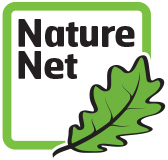Providing reliable and trustworthy information regarding Covid-19 is critical at this time. Nature Net recommends the following reputable resources:
World & Population Health
These links take you directly to Covid-19 resources:
- World Health Organization – The World Health Organization is headquartered in Geneva, Switzerland. Also known as WHO, the World Health Organization is made up of over 7,000 medical doctors, public health specialists and scientists in 150 countries. The WHO is the directing and coordinating authority on international health within the United Nations.
- Center for Disease Control and Prevention – The CDC is one of the major operating components of the Department of Health and Human Services. Their work aims to protect America from health, safety, and security threats. The CDC “fights disease and supports communities and citizens to do the same.”
- UW Global Health Institute – The Global Health Institute at the University of Wisconsin is “dedicated to improving and inspiring collaboration, educating tomorrow’s leaders, and promoting research and outreach to improve well-being for all.” Their work focuses on healthy people, animals, and ecosystems.
Local Information: South Central Wisconsin
- Public Health Madison & Dane County – The Madison & Dane County Public Health office works to “enhance, protect, and promote the health of the environment and the well being of all people has a direct impact on the quality of life we experience in Madison and Dane County.” They maintain a local Covid-19 Dashboard with information on tests, confirmed cases, and recoveries.
Other Important Information: Zoonotic Diseases
The Center for Disease Control and Prevention manages the office of One Health which works globally to achieve “optimal health outcomes recognizing the interconnection between people, animals, plants, and their shared environment.” Specifically, One Health aims to prevent, detect, and respond to zoonotic diseases. Zoonotic diseases are those that can spread between animals and people, including Lyme disease, ringworm, rabies, and purportedly the corona virus that causes Covid-19.
- OneHealth – Zoonotic disease definition and information on how germs spread between animals and people.
How to Talk to Your Kids About COVID-19
As talk about the COVID-19 virus increases, children may have worries about themselves, their family, or their friends becoming ill. It’s important for a trusted adult to help them make sense of their feelings and understand what is going on. There are many resources to help parents talk to their children about the virus in an honest, accurate, and age-appropriate way. Find these resources and a few general tips below.
A few general tips:
- Remain calm and reassuring. Your children take cues on how to react from you and your actions
- Make yourself available to talk and listen to your children’s concerns and worries
- Teach children actions to reduce the spread of germs including washing their hands and sneezing or coughing into their elbow
Resources:
- Center for Disease Control and Prevention – The CDC has created guidance to help adults have conversations with children about COVID-19 and ways they can avoid getting and spreading the disease.
- KidsHealth – Your kids are hearing about coronavirus (COVID-19). You want to make sure they get reliable information — and you want them to hear it from you. Here’s how to talk about it.
- How to Talk to Your Child About the Coronavirus (New York Times) – A child psychologist offers tips for age-appropriate conversations.
